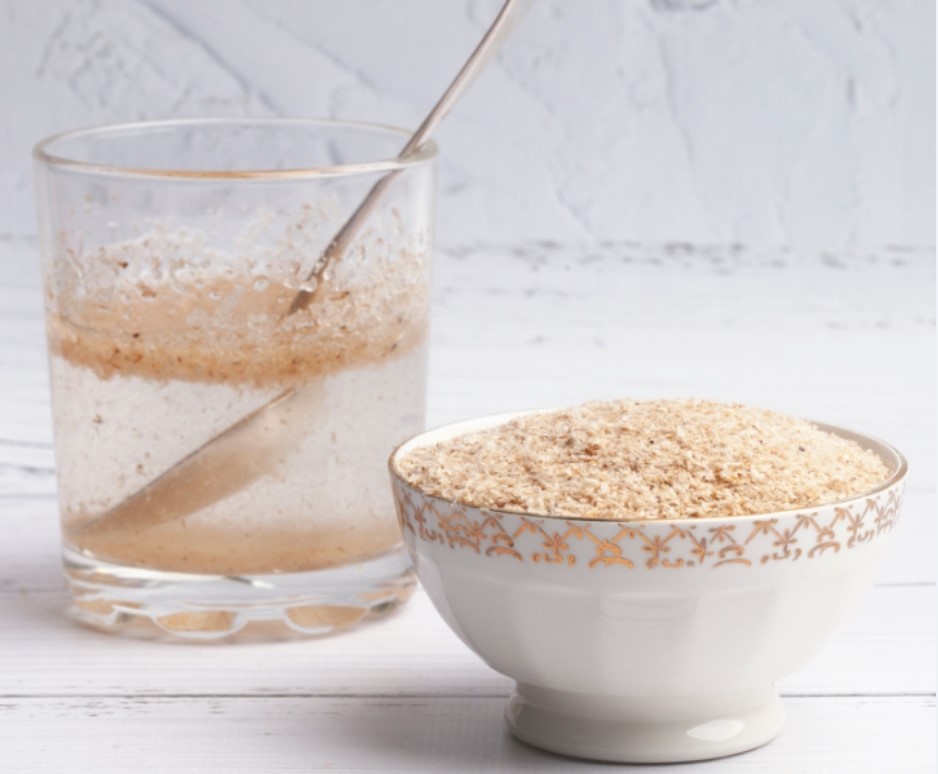The Importance of Self-Care for Caregivers
Self-care isn’t a luxury—it’s a vital practice that encompasses deliberate actions to maintain your physical, mental, and emotional health. As a caregiver, you’re part of an essential workforce that forms the backbone of our healthcare system, providing invaluable support to those who need it most.
Your role as a caregiver demands extraordinary dedication:
- Physical assistance with daily tasks
- Emotional support around the clock
- Medical care coordination
- Household management
- Transportation services
These responsibilities can be overwhelming, making self-care not just important—but critical for your survival and effectiveness. Research shows that caregivers who neglect their own needs face increased risks of:
“Burnout, depression, anxiety, and physical health issues can develop when caregivers prioritize others’ needs above their own consistently.”
The challenges you face require a balanced approach to maintain your well-being. This article explores practical strategies to help you:
- Physical Health: Exercise routines, nutrition (including weight management medications like Phentermine and Ozempic), and sleep habits
- Emotional Balance: Stress management and mental health support
- Social Connections: Building and maintaining support networks
- Personal Growth: Maintaining identity beyond caregiving
It’s also crucial to consider proper hydration as part of your self-care routine. Hydration plays a vital role in overall health, affecting everything from cognitive performance to weight management.
By implementing these self-care practices, you’re not just taking care of yourself—you’re ensuring you can provide the best possible care for others. Remember: Your well-being directly impacts the quality of care you can provide.
Understanding the Demands of Caregiving
Caregiving responsibilities go beyond just providing emotional support. They involve a wide range of daily tasks that require both physical strength and mental resilience. As a caregiver, your role includes:
Essential Daily Tasks:
- Preparing nutritious meals and monitoring dietary needs
- Managing household cleaning and maintenance
- Coordinating medical appointments and transportation
- Assisting with personal hygiene and grooming
- Administering medications and tracking health changes
These responsibilities create a constant cycle of physical demands that can strain your body. Many caregivers report experiencing:
- Chronic back pain from lifting and physical assistance
- Muscle tension from repetitive tasks
- Exhaustion from disrupted sleep patterns
- Weakened immune system due to stress
To address some of these physical challenges, it might be helpful to explore ways to boost your immunity during seasonal changes, which could provide some relief.
The emotional weight of caregiving shows up in different ways:
“You’re always on. There’s no clock-out time when you’re caring for someone you love.”
This 24/7 mindset leads to:
- Persistent anxiety about your loved one’s condition
- Emotional exhaustion from constant vigilance
- Sleep disturbances affecting your rest quality
- Physical fatigue impacting your daily energy levels
Your role requires balancing multiple responsibilities while maintaining heightened awareness of your loved one’s needs. This combination of physical demands and emotional strain creates unique challenges that impact your health and well-being.
In terms of managing the dietary aspect, preparing meals that align with specific health conditions can be crucial. For instance, if your loved one has diabetes, you might want to refer to this ultimate guide for healthy snacks for diabetes in 2024 for some useful tips.
Moreover, if you’re dealing with stress-related issues such as weight gain or loss of appetite, you might find it beneficial to understand how Ozempic affects fullness or explore the benefits and risks of a 96-hour fast as potential strategies.
Lastly, it’s important to note that certain medications like Ozempic, which is effective for managing Type 2 diabetes, are not considered safe during pregnancy. If this is a concern for you or your loved one, consider reviewing this information on Ozempic’s safety during pregnancy.
Recognizing Signs of Caregiver Stress
Caregiver stress shows up in specific physical and emotional signs. Here are some symptoms to watch out for:
Emotional Warning Signs:
- Sudden outbursts of anger or irritability
- Persistent feelings of anxiety and worry
- Unexplained sadness or frequent crying
- Social withdrawal from friends and family
- Difficulty concentrating on tasks
- Loss of interest in previously enjoyed activities
For those persistent feelings of anxiety, exploring options like ketamine treatment may provide relief.
Physical Indicators:
- Chronic headaches and muscle tension
- Changes in appetite and weight
- Frequent illness or weakened immune system
- Insomnia or disrupted sleep patterns
- Constant fatigue despite rest
- Digestive problems
Changes in appetite could also lead to unhealthy eating habits, especially if you’re experiencing stress-related gastrointestinal issues.
Behavioral Changes:
- Increased alcohol consumption
- Misuse of prescription medications
- Neglecting personal health appointments
- Procrastinating important tasks
- Making careless mistakes
- Developing unhealthy eating habits
These signs often appear gradually, making them easy to dismiss. Tracking your symptoms through a daily journal helps identify patterns and triggers. Early recognition allows you to implement necessary changes before reaching complete exhaustion. Your body sends these signals as a protective mechanism – listening to them prevents severe burnout and maintains your capacity to provide quality care.
Professional caregivers recommend conducting weekly self-assessments to monitor stress levels. This practice helps you stay aware of your emotional and physical state, enabling timely interventions when needed.
When it comes to physical symptoms, such as chronic digestive problems, it’s essential to understand that gut health plays a significant role. Issues like constipation can stem from gut microbes, which is a hidden cause often overlooked during stressful times.
Essential Self-Care Strategies for Caregivers
Your role as a caregiver requires sustained energy and resilience. Implementing effective self-care strategies helps you maintain the strength needed to provide quality care while protecting your own well-being.
Physical Wellness Practices
- Start your day with 30 minutes of moderate exercise – walking, swimming, or yoga
- Pack nutrient-rich snacks like nuts, fruits, and vegetables for quick energy boosts. Consider exploring the emerging benefits of menopause-friendly nutrition if this is relevant to you.
- Stay hydrated by keeping a water bottle within reach during caregiving tasks
- Schedule regular health check-ups and preventive care appointments
Sleep Optimization
- Create a consistent bedtime routine to signal your body it’s time to rest
- Keep your bedroom cool, dark, and quiet
- Limit screen time 1-2 hours before bed
- Use white noise or meditation apps to help quiet racing thoughts. For more tips on improving sleep quality, visit the sleep relaxation section at WellnessHQ.
Stress Management Techniques
- Practice deep breathing exercises during challenging moments:
- Inhale for 4 counts
- Hold for 4 counts
- Exhale for 4 counts
- Repeat 5 times
- Try progressive muscle relaxation during breaks
- Use meditation apps for guided sessions as short as 5 minutes
- Set boundaries around your caregiving responsibilities
Personal Identity Maintenance
- Dedicate 15-30 minutes daily to a hobby you enjoy
- Join online communities related to your interests
- Listen to audiobooks or podcasts during routine tasks
- Schedule regular video calls with friends
Time Management Tips
- Break large tasks into smaller, manageable chunks
- Use caregiving apps to track medications and appointments
- Create a daily schedule that includes dedicated self-care blocks
- Keep a running list of tasks that others can help with
Remember: small, consistent actions build sustainable self-care habits. Start with one strategy that resonates with you and gradually incorporate others as they become routine. Your effectiveness as a caregiver directly correlates with your commitment to self-care.
In addition, it’s important to remember that positive experiences can protect children’s heart health, emphasizing the need for both caregiver and child well-being. Lastly, mastering the art of a balanced diet is crucial for optimal health; here are some essential tips for building a balanced diet.
The Role of Support Systems in Self-Care
Building a strong support system is essential for caregivers to practice effective self-care. You don’t have to bear the responsibilities alone – asking for help is a sign of strength, not weakness.
Family and Friends Support
- Ask specific family members to handle grocery shopping or meal preparation
- Create a rotating schedule for shared caregiving duties
- Request help with household chores or maintenance tasks
- Set up regular check-in calls for emotional support
Professional and Community Resources
- Connect with local caregiver support groups
- Schedule regular consultations with healthcare providers
- Explore respite care services for temporary relief
- Contact social workers for resource navigation assistance
Your local community likely offers various support services designed specifically for caregivers:
- Adult day care centers
- Home health aide services
- Meal delivery programs
- Transportation assistance
- Support group meetings
Remember that healthcare professionals can provide valuable guidance beyond medical advice. They can:
- Recommend specialized support services
- Connect you with other families in similar situations
- Provide training for specific caregiving tasks
- Help create emergency care plans
Building these support networks takes time and effort, but the investment pays off through reduced stress and improved care quality – both for you and your loved one.
In some cases, taking care of your health might involve making significant decisions such as switching medications. For instance, if you’re currently on Jardiance and considering a switch to Ozempic, it’s crucial to understand the effectiveness and benefits of both medications. Consulting your healthcare provider about such changes can be an important part of your self-care strategy.
Additionally, it’s worth noting that certain medications like Jardiance can have implications on conditions such as kidney disease and type 2 diabetes. For more information on game-changing medications that could be beneficial in managing these health issues, consider discussing with your healthcare provider.
Expanding Self-Care Beyond Caregiving Contexts
Self-care extends far beyond your caregiving responsibilities. You can transform your personal growth journey by setting specific, achievable goals that focus on your needs and aspirations.
Key Areas for Personal Development:
- Learn a new skill or hobby you’ve always wanted to pursue
- Take online courses to advance your career prospects
- Set fitness milestones that challenge and energize you
- Create a reading list for mental stimulation and enjoyment
- Schedule regular “me time” activities
Incorporating health-related goals into your self-care routine can also be beneficial. For instance, exploring options like NAD+ injection for anti-aging or cognitive enhancement could be a worthwhile consideration. Similarly, if you’re managing weight or diabetes, looking into sublingual Semaglutide as a non-invasive treatment option might be beneficial.
Building meaningful social connections outside your caregiving role strengthens your emotional resilience. These relationships provide fresh perspectives, shared experiences, and opportunities for personal growth.
Ways to Build Social Connections:
- Join community groups aligned with your interests
- Participate in local events or workshops
- Connect with other caregivers through support groups
- Schedule regular coffee dates with friends
- Engage in volunteer activities that matter to you
Your identity isn’t limited to being a caregiver. By pursuing personal goals and nurturing social bonds, you create a fuller, richer life experience. These connections and achievements boost your confidence, reduce stress, and enhance your ability to handle caregiving challenges.
Remember to celebrate small wins and acknowledge your progress. Each step forward in your personal growth journey contributes to your overall well-being and makes you a more resilient caregiver.
Incorporating Joy and Relaxation into Daily Life
Journaling creates a powerful outlet for processing complex emotions and experiences in your caregiving journey. You can start with simple daily entries:
- Gratitude Lists: Write down three things you’re thankful for each day
- Emotional Check-ins: Record your feelings without judgment
- Memory Capturing: Document special moments with your care recipient
- Problem-solving: Work through challenges by writing potential solutions
Storytelling adds another dimension to your self-care practice. Share your experiences through:
- Writing short stories about your caregiving journey
- Creating photo albums with meaningful captions
- Recording voice memos of significant memories
- Participating in caregiver support groups where stories are shared
These creative outlets help you:
- Release built-up stress and tension
- Gain fresh perspectives on challenging situations
- Create lasting memories
- Connect with your inner thoughts and feelings
- Find moments of joy in unexpected places
In addition to journaling and storytelling, it’s important to take care of your physical health as well. If you’re using medications like Wegovy for weight loss, you should be mindful of your alcohol consumption. Wegovy and Alcohol: Essential Tips for Safe Consumption can provide valuable insights on how these two interact.
Try dedicating 15 minutes each day to these activities. You might write during your morning coffee, lunch break, or before bed. Keep your journal and writing materials easily accessible – perhaps in your bag or on your bedside table. The simple act of putting pen to paper can transform difficult moments into opportunities for growth and self-discovery.
A Holistic Approach to Maintaining Well-Being as a Caregiver
A comprehensive self-care routine addresses your physical, emotional, and mental needs as interconnected elements. Here’s how you can create a balanced approach:
Physical Well-being
- Regular exercise routines that match your energy levels
- Nutritious meals that fuel your body, such as those from a plant-based diet which offer long-term health benefits
- Adequate sleep patterns that support recovery
Mental Health
- Daily meditation or mindfulness practices
- Brain-stimulating activities like puzzles or reading
- Regular breaks from caregiving responsibilities
Emotional Balance
- Connection with support groups or counseling services
- Time for personal hobbies and interests
- Healthy boundaries in caregiving relationships
Your self-care journey is unique to you. Listen to your body’s signals and adjust your routine as needed. Remember that caring for yourself isn’t selfish—it’s essential for sustainable caregiving. When you maintain this holistic balance, you’re better equipped to provide quality care while preserving your own health and happiness.
Incorporating some of the latest breakthroughs in skincare technology can also enhance your physical well-being, allowing you to feel more confident and rejuvenated. You can explore these advancements here.
Moreover, consider incorporating butterfly milk into your diet for its numerous health benefits. This vibrant drink is packed with antioxidants and can contribute positively to your overall health.
Lastly, if you’re interested in exploring trending diet approaches, new research reveals the positive impact of intermittent fasting on metabolic health, making it a valuable addition to your self-care routine.
FAQs (Frequently Asked Questions)
Why is self-care important for caregivers?
Self-care is essential for caregivers as it helps maintain their overall well-being, balancing physical, emotional, and mental health. Given the unique challenges and critical role caregivers play in society, prioritizing self-care prevents burnout and supports sustained caregiving effectiveness.
What are common challenges faced by caregivers that impact their well-being?
Caregivers often handle responsibilities such as meal preparation, cleaning, and transportation, which can be physically demanding. Emotionally, they may experience fatigue, sleep disturbances, anxiety, and stress due to the continuous care demands.
How can caregivers recognize signs of stress and burnout early?
Early warning signs of caregiver stress include emotional symptoms like anxiety, impatience, loneliness, sadness, and physical symptoms such as headaches or pain. Unhealthy coping mechanisms like substance misuse may also indicate stress. Recognizing these signs early enables timely intervention to prevent burnout.
What are effective self-care strategies for caregivers to reduce stress?
Effective self-care strategies include engaging in regular exercise and maintaining balanced nutrition to sustain energy levels; ensuring sufficient restorative sleep; practicing relaxation exercises and meditation; and participating in hobbies or recreational activities to promote mental relief and preserve a sense of self beyond caregiving duties.
How can support systems enhance caregiver self-care?
Support systems play a vital role by encouraging caregivers to seek assistance from family, friends, healthcare professionals, and community resources. These networks provide emotional support and respite care options that alleviate caregiving burdens and promote holistic well-being.
What does a holistic approach to caregiver well-being involve?
A holistic approach integrates physical health needs with emotional and mental well-being practices. This comprehensive self-care routine addresses all aspects of a caregiver’s being—balancing physical activity, nutrition, emotional support, mental relaxation techniques, and personal growth goals—to sustain long-term health and resilience.






